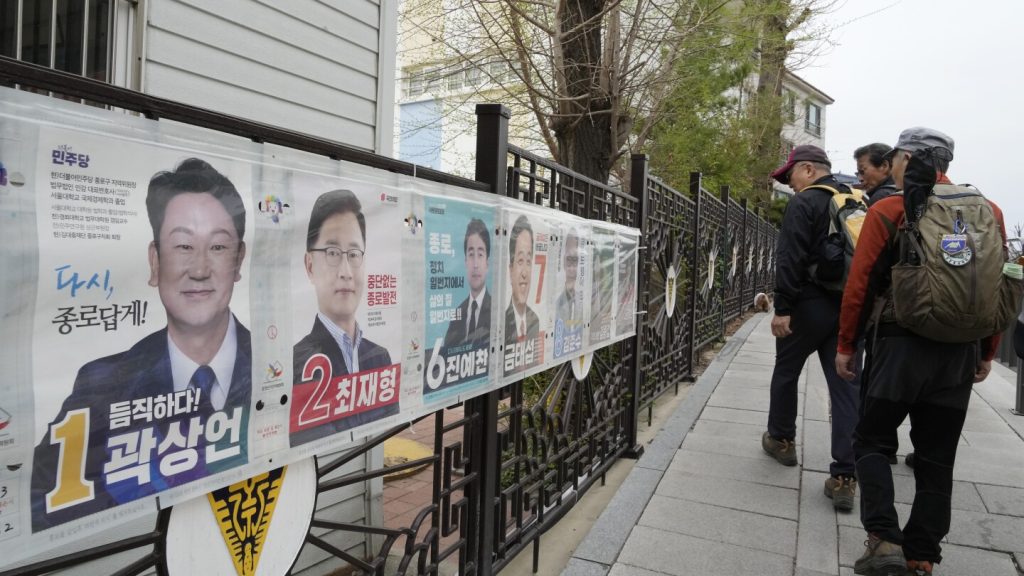SEOUL, South Korea – Voters in South Korea are gearing up for the upcoming election for a new 300-member parliament, with many focusing on domestic issues such as prices, jobs, and taxes, rather than traditional agendas like North Korean nuclear threats. Experts estimate that up to 30% to 40% of the country’s 44 million voters are politically neutral, with their support likely determining the election results. The divide between conservatives and liberals in South Korea is clear, but the rise of moderates who are tired of partisan strife and prioritize livelihood issues could sway the outcome of the elections.
The upcoming elections in South Korea are shaping up to be closely contested, with liberal opposition parties potentially retaining their majority status, which could make conservative President Yoon Suk Yeol an early lame duck. However, with many moderates still undecided, the final outcome remains uncertain. Regardless of the election results, Yoon’s major foreign policy agendas, such as security cooperation with the U.S. and Japan, are expected to remain unchanged. The focus on domestic issues like livelihoods and the economy is highlighted as a key factor in determining voter sentiment in the upcoming elections.
One of the key issues affecting voters in South Korea is the rising prices of essential goods, such as green onions and apples. President Yoon Suk Yeol faced backlash after appearing to underestimate the prices of green onions during a visit to a grocery store. The average retail prices of green onions have skyrocketed, along with other agricultural products, causing concern among voters. While some are critical of Yoon’s handling of the economy, others feel that his knowledge of green onion prices is not a significant factor in their decision-making process. The ruling party is under pressure to address the affordability of essential goods as the election draws near.
Another major issue impacting the upcoming elections is the weeks-long strikes by thousands of doctors protesting against Yoon’s plan to increase medical school admissions to create more doctors. The strikes have led to canceled surgeries and inconveniences for patients, prompting calls for a compromise. The government maintains that increasing the medical school quota is essential to address the country’s low doctor-to-population ratio, but critics argue that the plan is being implemented too abruptly. The striking doctors’ actions have put pressure on Yoon’s party as the election approaches.
Toxic rhetoric and personal attacks have also marred the election campaign in South Korea, with rival parties exchanging offensive language against each other. The use of derogatory terms and insults has heightened tensions between the ruling and opposition parties. Former liberal justice minister Cho Kuk, a controversial figure, has launched a new party and is expected to win seats in the upcoming elections. The divisive language and personal attacks have further polarized the political landscape, making it challenging for voters to navigate the barrage of negative rhetoric. The role of such toxic discourse in shaping voter perceptions remains a significant concern as South Korea prepares for the upcoming elections.


